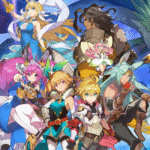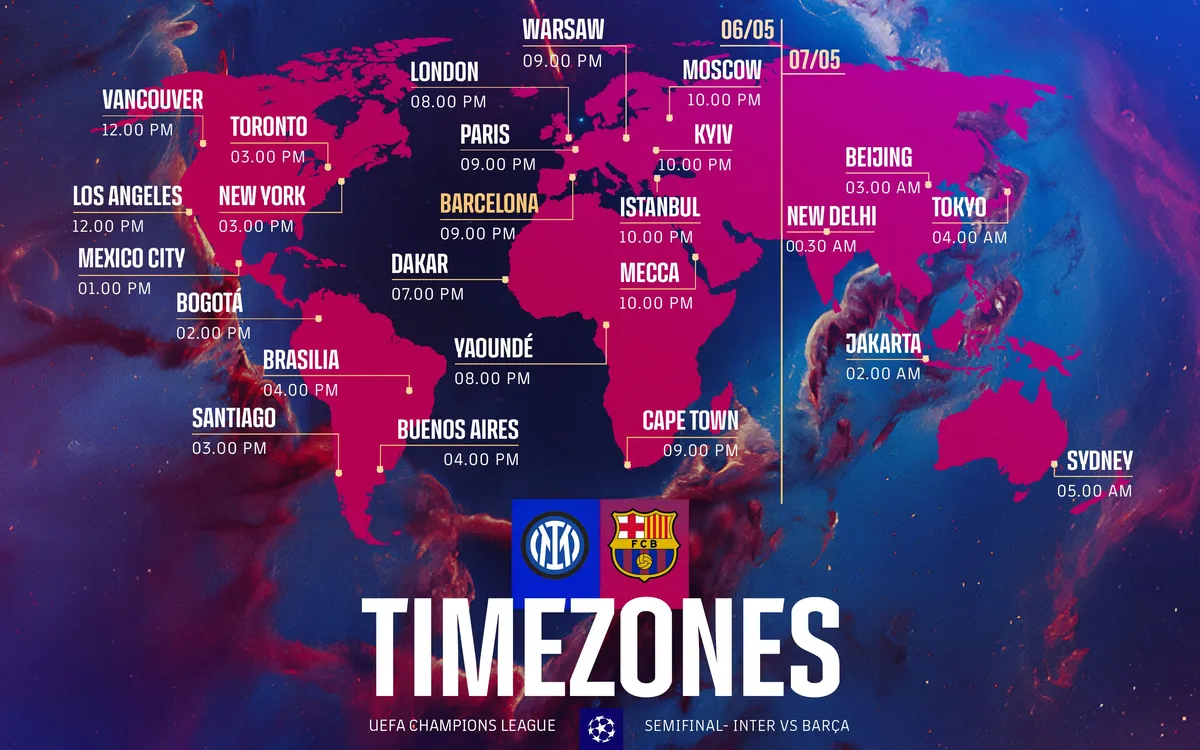The story of Inter Milan vs FC Barcelona began decades ago when both clubs were establishing themselves as major forces in Europe. During the early years, their meetings were rare but always intense. Barcelona, known for their attacking style, often clashed with Inter’s defensive strength and tactical discipline — creating a beautiful contrast of football philosophies.
In the 1980s and 1990s, both clubs grew into European powerhouses. Barcelona became famous for their flair and creativity, while Inter built their identity on organization and resilience. Though they did not meet frequently during this period, fans could sense that whenever these two teams faced each other, it would be more than just a game — it would be a battle of ideologies.
2009–10: Mourinho’s Inter vs Guardiola’s Barcelona – The Iconic Chapter
The most famous chapter of the Inter Milan vs FC Barcelona timeline came during the 2009–10 UEFA Champions League season. This clash is still remembered as one of the greatest rivalries in modern football.
In the group stage, Barcelona and Inter were drawn together. The first game in Milan ended in a 0–0 draw, while Barcelona won the return leg 2–0 at Camp Nou, topping the group. Few would have predicted that they would meet again later in the tournament under much higher stakes.
In the semi-finals, the two clubs met once more — and this time, history was made. Under José Mourinho, Inter Milan played fearless and intelligent football. The first leg at the San Siro ended 3–1 in favor of Inter, with goals from Wesley Sneijder, Maicon, and Diego Milito. Barcelona’s only goal came from Pedro Rodríguez.
The second leg at Camp Nou was an unforgettable night. Despite being reduced to 10 men after Thiago Motta’s red card, Inter defended heroically. Barcelona won 1–0 through Gerard Piqué, but it wasn’t enough — Inter advanced to the final on aggregate.
That semi-final remains one of the most iconic moments in Champions League history. Inter’s disciplined defending and Mourinho’s tactical brilliance shocked the football world. Inter later went on to win the 2010 Champions League, completing a historic treble.
2018–19: Messi Magic Returns
After several years, Inter Milan and Barcelona met again in the 2018–19 Champions League group stage. By then, Barcelona was led by Lionel Messi, while Inter was rebuilding its European reputation.
In the first match at Camp Nou, Barcelona won 2–0 with goals from Rafinha and Jordi Alba. The return leg at San Siro ended 1–1, with goals from Malcom for Barça and Mauro Icardi for Inter.
The matches reflected the difference in levels at the time — Barcelona’s experience and technical ability dominated, while Inter showed fighting spirit and potential for the future.
2019–20: Inter Fight Hard but Barcelona Triumphs Again
The two sides met once again in the 2019–20 group stage. Barcelona, still strong under Ernesto Valverde, continued to dominate, while Inter was showing signs of progress under Antonio Conte.
At Camp Nou, Barcelona won 2–1, with Luis Suárez scoring twice after Lautaro Martínez had given Inter an early lead. In the return match in Milan, Barcelona, despite fielding a younger squad, defeated Inter 2–1 again — with goals from Carles Pérez and Ansu Fati.
This defeat was painful for Inter, as it eliminated them from the group stage. However, it also showed that the gap between the two sides was slowly closing.
2022–23: A New Chapter of Competition
The rivalry between Inter Milan and FC Barcelona was reignited in the 2022–23 Champions League season. This time, both clubs were in a tough group alongside Bayern Munich.
The first leg at the San Siro saw Inter win 1–0, thanks to a goal from Hakan Çalhanoğlu. Inter’s defensive organization frustrated Barcelona throughout the game.
The return leg at Camp Nou was pure drama. The match ended 3–3, with goals from Ousmane Dembélé, Robert Lewandowski, Lautaro Martínez, and Robin Gosens. It was one of the most thrilling games of the season.
Inter’s performance over the two legs proved decisive — they qualified for the knockout stage, while Barcelona were sent to the Europa League. This moment marked a symbolic shift, showing Inter’s return to European elite status.
Tactical Battles and Contrasting Philosophies
Throughout their timeline, Inter Milan and FC Barcelona have represented two different footballing identities.
-
Inter Milan is known for its tactical discipline, defensive organization, and counter-attacking power. From Helenio Herrera’s “Catenaccio” era to Mourinho’s defensive brilliance, Inter’s strength has always been in structure and efficiency.
-
FC Barcelona, on the other hand, symbolizes creativity, ball possession, and attacking beauty. The famous “tiki-taka” style under Pep Guardiola revolutionized football and made Barcelona a symbol of modern technical excellence.
Every clash between these teams becomes a tactical duel — defensive resistance versus creative attack, structure versus flair.
Historic Impact and Legacy
The Inter Milan vs FC Barcelona rivalry has produced not just memorable matches but also lessons in football strategy and mentality. It has featured legendary players like Messi, Xavi, Iniesta, Sneijder, Milito, and Eto’o, each leaving their mark on this rivalry.
For fans, these matches represent more than just football — they reflect passion, emotion, and respect between two great clubs with rich traditions.
Conclusion
The timeline of Inter Milan vs FC Barcelona is filled with drama, history, and unforgettable football. From Mourinho’s tactical masterclass in 2010 to the thrilling 3–3 draw in 2022, this rivalry has captured the hearts of millions.
It stands as one of the greatest European rivalries, showcasing how football can unite passion, culture, and strategy. Both clubs continue to evolve, but whenever Inter Milan and FC Barcelona meet again, fans know they are witnessing history in the making — a battle between two giants whose legacies will forever be intertwined.











